Lucie Shorthouse is enjoying some high-profile TV action with her roles in Channel 4’s We Are Lady Parts, about the adventures of an all-woman Muslim punk band, and in BBC One’s reincarnated Rebus. In the former, she plays the band’s niqab-clad manager Momtaz, while the latter casts her as rookie cop DC Siobhan Clarke, trying to cope with the maverick behaviour of the titular John Rebus, played by Richard Rankin. Both shows have enjoyed a surge of critical acclaim and have pulled healthy audiences, which must surely have got the phones ringing in the office of Shorthouse’s agent. And that’s on top of her prominent role in Caroline Moran’s BBC Two comedy Henpocalypse! last year.
She enjoyed a theatrical breakout in 2017 when she pioneered the role of Pritti Pasha in the musical Everybody’s Talking About Jamie, first at the Sheffield Crucible and subsequently at London’s Apollo Theatre. She played opposite John McCrea, in the title role of Jamie the teenage drag queen, and prompted theartsdesk’s Marianka Swain to observe how “the warm, engaging Shorthouse develops a believably lived-in friendship with McCrea”. The role won her a WhatsOnStage award for Best Supporting Actress in a Musical, as well as the 2018 H100 Hospital Club's Rising Star Award.
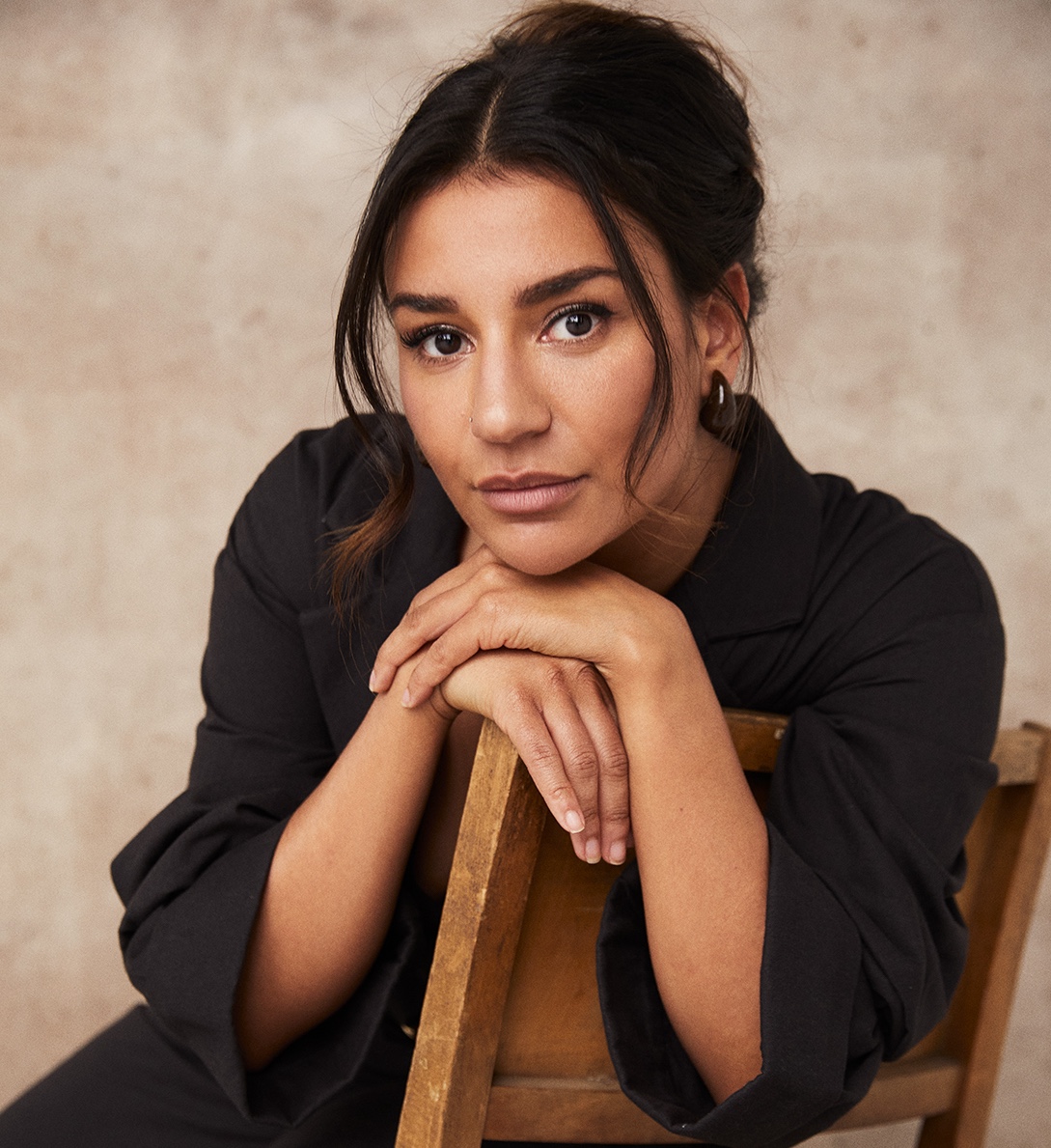 Shorthouse, who grew up in Tamworth in a family which had moved to the UK from Kenya, graduated from the Italia Conti Academy of Theatre Arts in 2015, having previously notched up a BA in English and Drama while attending Selwyn College, Cambridge. She had also performed in the Cambridge Footlights, the university’s fabled comedy troupe which has launched such household names as Hugh Laurie, Emma Thompson, Peter Cook and John Cleese.
Shorthouse, who grew up in Tamworth in a family which had moved to the UK from Kenya, graduated from the Italia Conti Academy of Theatre Arts in 2015, having previously notched up a BA in English and Drama while attending Selwyn College, Cambridge. She had also performed in the Cambridge Footlights, the university’s fabled comedy troupe which has launched such household names as Hugh Laurie, Emma Thompson, Peter Cook and John Cleese.
Shorthouse says the stage will always be her first love, and she reckons she’s suited to comedy because “I’m very silly and self-deprecating”, but she was also keen to break into television. She’d barely graduated from Cambridge when she bagged a small role in BBC One’s Line of Duty, where she found herself playing opposite Thandie (before she reverted to Thandiwe) Newton and Vicky McClure. “I almost think of it like a training workshop because I learned so much from that day,” she recalls. Evidently, it has stood her in very good stead.
ADAM SWEETING: With Lady Parts, do you get any input into the writing?
LUCIE SHORTHOUSE: Nida Manzoor writes it but I remember it was December 2022 and we all met up, and she said so guys, any ideas for season two? We said we want a rival band, we want the threat of them going big time, and then that dilemma of do you sell out? They’re more of a grassroots kind of band, do they sell out to more mainstream success? So we batted these ideas around but Nida I think had already thought of those because that’s the kind of the clear progression for what the band would be doing. She’s so open to us as actors, and we saw a lot more of our identities personally interwoven with these characters. You don’t always get that with the creator, because sometimes they’re very precious over their work.
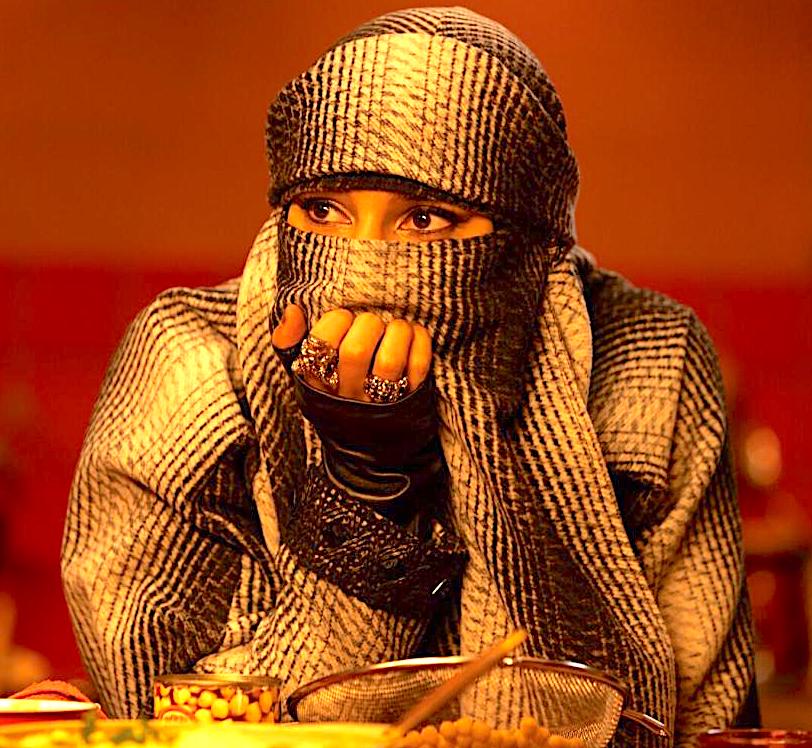 Does it feel like a real band when you get together?
Does it feel like a real band when you get together?
It does, but it’s honestly the most chaotic band. I think you can tell with the effervescence when we’re in those scenes where it’s all five of us, it’s so fizzy and sometimes you can’t get anything done. But they are like an authentic band – obviously I’m the band manager – but it’s not all TV magic, they rehearse and work really hard. Nida has written these fantastic lyrics and her brother has helped compose these beautiful melodies, but the way they attack the work allows them to really ping and I have such admiration whenever I get to watch them do these songs, it’s insane.
We don’t get to see your face because you’re wearing the niqab (pictured above). Is that an issue at all?
Not really. We did a pilot in 2018 so this has been years in the making, and the casting director said she was concerned about whether an actress would want to take this on. I don’t move through the world wearing a niqab so it was definitely like an alien thing to have to reconcile, but I very much got used to it. As an actor it’s all about visibility isn’t it, all about PR, it’s putting yourself out there and so on, and I really learned then that my currency in the world is not just what I look like, it’s the least interesting thing about me. I was never somebody who assigned my worth to what I looked like, but it made me realise that at times I’ve relied on it in certain ways in terms of how I’m perceived. It was really liberating actually to get that experience. I thought I’d be a bit like "oh, it could be anyone behind there, it could be any actress, it’s just the eyes". Then certainly after this season I watched and thought it couldn’t just be anybody actually. But yeah, I think when I first got the role it was a sense of like "well, will I ever show my face?" There was a scene in series two where I get quite emotional where I potentially take off my niqab, and me and Nida looked at each other and agreed, I was like "we don’t owe anyone her face, we don’t need it". We’d only be doing it for potentially my ego and for the show to have a reveal. The story doesn’t need this, Momtaz doesn’t need this.
You’re not actually a Muslim yourself?
I’m not a practising Muslim but my auntie married into Islam, and my cousins practise Islam, they have Islamic names, so it's something I was always exposed to growing up. When they’d come over we’d make sure they had had a room to pray in that was in the right position, it was something I had a great respect for and appreciation of. Nida said you’re the best person for this role and it’s acting and it’s also having an appreciation and affording grace to these characters and their circumstances, that’s paramount. But hopefully one day there’ll be so many Islamic actresses out there, hijabi actresses, niqabi actresses, that they won’t need me to step into those shoes.
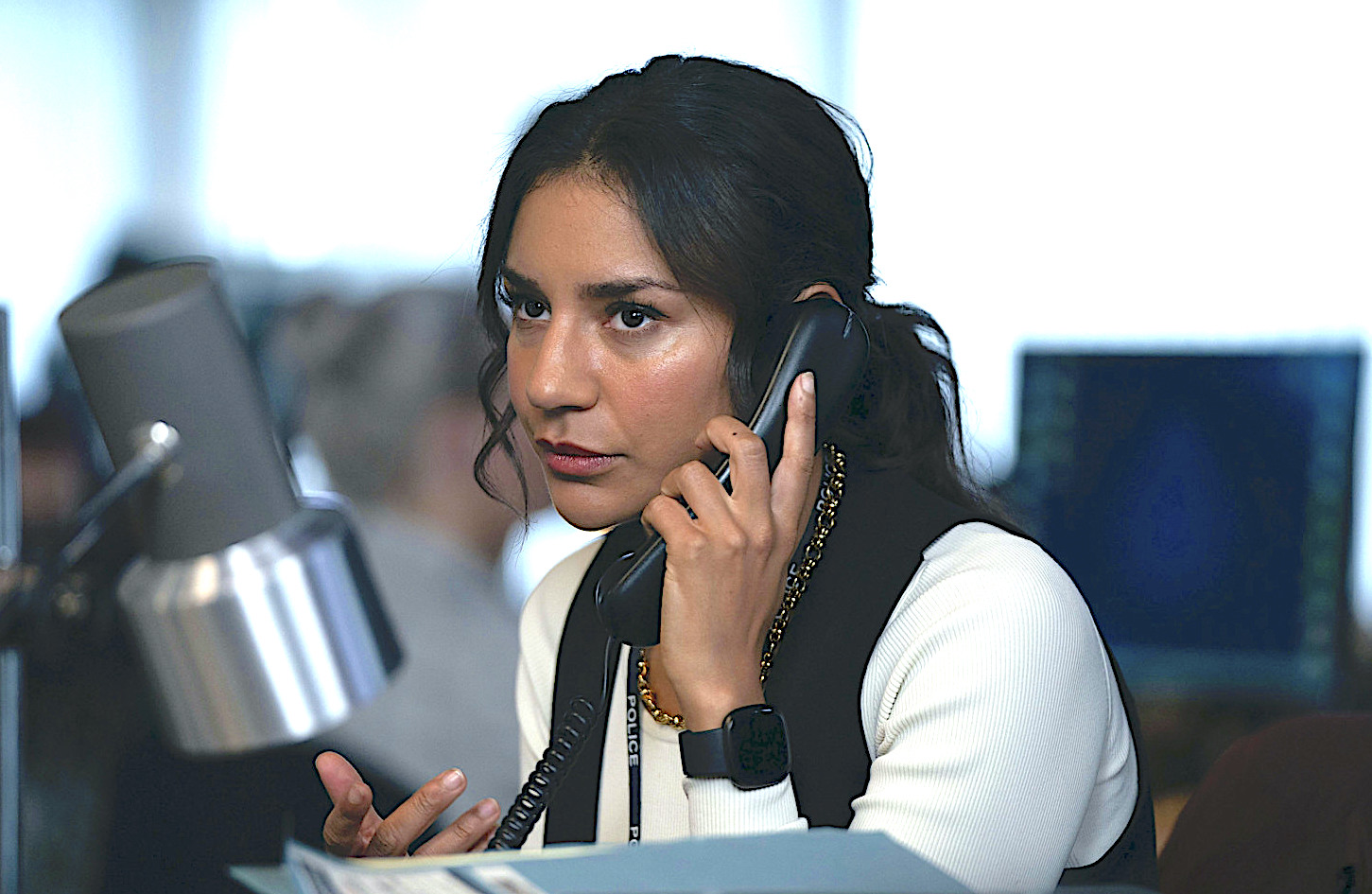 Has Lady Parts taught you anything about the music business?
Has Lady Parts taught you anything about the music business?
Well I think it’s very similar to the acting business. Obviously the first series got so much critical praise that it’s like that sophomore album syndrome of how the hell do you replicate the success of that? You can’t go into it trying to repeat it, you’ve got to just be authentic and creative, so it was very meta in terms of the themes of this series and what Nida was having to do in terms of creating the series. I think it aligns to the acting industry in that it’s cutthroat and you’ve got to have a thick skin and it’s not always about talent strictly, there’s so many other factors involved. Particularly again it’s not as bad as it used to be, but in terms of that idea of being tokenistic or being the diversity hire… even if no-one’s ever given you the impression of that, I think if you are a brown or black person operating in this world you automatically internalise the idea that ‘am I the diversity hire? Have I been hired because of equal opportunities?’ It’s those sorts of things. I don’t know much about the music industry but I think it’s probably very similar to the acting industry. In a normal setting, how hard you work and how many hours you put in is usually rewarded with a promotion and it’s a linear progression whereas with acting it’s not that, and I think it’s like that sometimes with the music industry, unless you really break out it’s really tough. In this series we talk about Lady Parts trying to afford to have their album recorded. But having to put all that money into your own work is really difficult because how do you have any extra income to put towards that? It speaks again to the dilemma we have about working class actors in this industry, that there’s so much gatekeeping and lack of social mobility. It’s the same I think with the music business.
Are you a musician yourself?
I played piano, violin and guitar growing up and then I discovered boys, and I quit them all and I regret it so much! But during lockdown I took up guitar again, but I’m never gonna be the best. You realise that with people who are at the top of their game musicianship-wise it’s just a whole other level. So for me it’s always been like a hobby. I always wanted to express myself creatively and I’m so grateful to my parents for working hard so I could have these lessons and stuff, but I don’t regularly play an instrument. I’ve sung in shows before, in musicals, but I find it so vulnerable because it’s so personal. It’s an extension of your breath, it’s intrinsic to who you are so it’s scary for me to sing.
You did ITV's The Sound of Music Live?
That was one of my first jobs. I’d graduated in the summer and I got that in the winter. The Sound of Music for me, I was raised on that film. All I wanted was to be a Von Trapp child as a kid! Everyone has that first lightbulb moment when they go "oh my God, I love this", and Sound of Music was that for me (pictured below, the Lady Parts crew with Shorthouse far left).
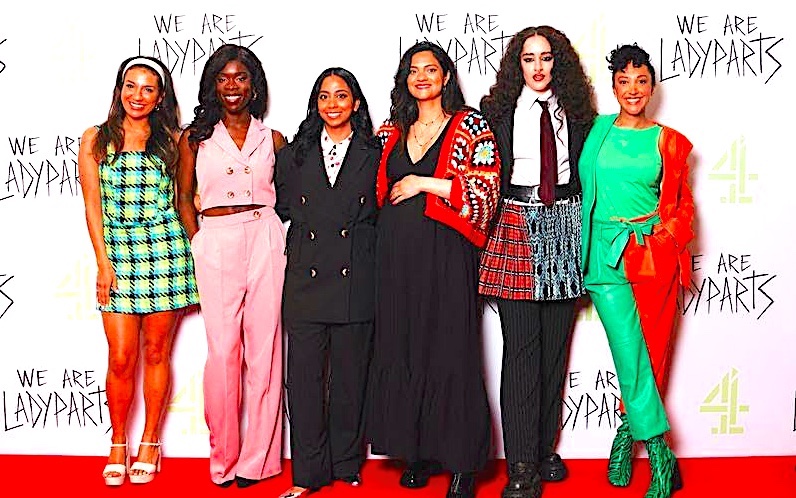 Was your family musical?
Was your family musical?
There’s a lot of singers on my dad’s side, my dad’s the Ugandan side and everyone can sing on my dad’s side. I’d sometimes say "dad, am I the best singer in the family?" He’d be like, no! Even on my mum’s side there’s a lot of great musicians that were in bands as well so on both sides it’s in the blood. I grew up around a lot of music, on soul and Motown & all the Eighties stuff.
Did you go to see Taylor Swift?
I did and it was the best night of my life! It was so good! And you know what, again, people want to put women who are in a great position like that down, and again I understand it – she’s very oversaturated, she’s everywhere, every newspaper article’s about her, I get it, so I understand that natural reaction to want to repel the mainstream sometimes, but she is absolutely someone at the peak of their craft and seeing her live… she did three hours non-stop, she does these surprise songs so each show is completely unique, she plays for every single person in the crowd even if you’re up in the gods, and she has this culture there that’s so friendly. It was at Anfield and it was around 50,000 people, it was so packed, but it was the most friendly and safest I’ve ever been because the atmosphere was so warm. I just loved it and I loved her. I think the reason she’s so successful is that she’s a great songwriter and in any situation you’re going through in your life you’ll be able to find one song of hers that absolutely speaks so clearly to it. I think that’s why she’s been so successful, she’s very relatable.
It’s hard to remember that Taylor used to be a country singer.
Yes, again I was raised on country music as well. It was my dad who would make me listen to a band called the Chicks, formerly the Dixie Chicks. I love them! I remember him saying "Loos, listen to this", I think it was "Wide Open Spaces", and I remember being in the car and I was like "oh! I love this song". So my dad exposed me to all of this. My mum introduced me to LeAnn Rimes as well as a kid, so we got every genre of music. And my parents were massive Eagles fans as well. Honestly, we’d be like groupies following them around. We went on a special holiday to Boston and Texas just to watch the Eagles, as a kid I didn’t appreciate it, I was like "who’s this? I wanna see J. Lo or Beyoncé", but now I think how lucky was I that I got to watch them.
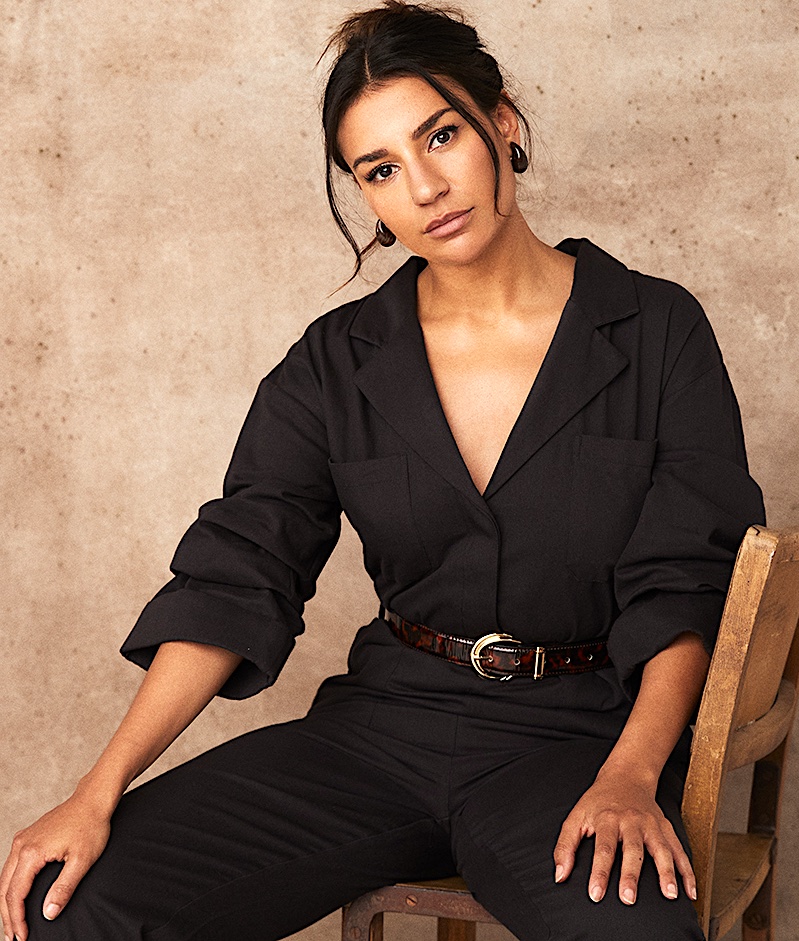 Tell me about Rebus. You play DC Siobhan Clarke, who’s a fast-tracked young police officer working with the hard-drinking, rule-bending John Rebus (Richard Rankin). Did you identify with her?
Tell me about Rebus. You play DC Siobhan Clarke, who’s a fast-tracked young police officer working with the hard-drinking, rule-bending John Rebus (Richard Rankin). Did you identify with her?
I could in a way of just being intimidated by a situation. I think back to when I first graduated as an actor, when you’re in the infancy of your career you feel like you’ve got to prove yourself. There’s certain rooms I can go in now, certain audition spaces, where I know I will shrink inside myself and feel really intimidated. I can certainly relate to that idea of being in a male-dominated area as well, or thinking there are going to be all these preconceived notions about me, and how do I combat that without being over-compensatory or not trusting myself. And I loved that this role was written with that all implicit in it. Obviously [screenwriter] Gregory Burke adapted it from the books, he did such a great job with the scripts. There’s a scene I think we do in a coffee shop where Richard and I first ask about each other’s history and whatever, and that sense of intimidation and that kind of weird subtle sly dynamic, I think we did a really good job of pulling that out. I can definitely relate to that. But I’ve always loved crime dramas and I’ve always wanted to be in one. I’ve done one before [Bulletproof on Sky One] but it was more comedy and action based, so it was nice to sink my teeth into something a bit more gritty.
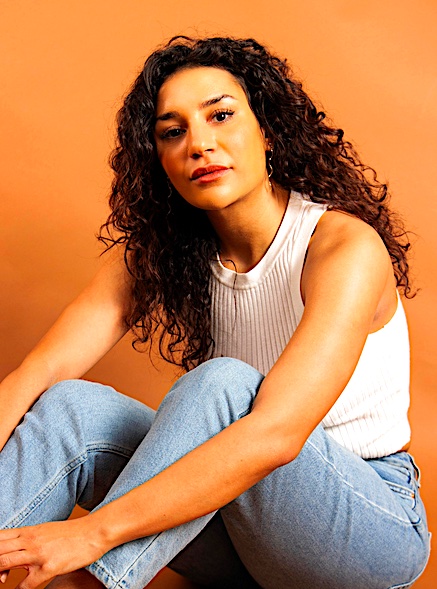 Rebus is old school, beats people up and takes no prisoners, but your character is more like the new age of policing, diversified, inclusive and whatever?
Rebus is old school, beats people up and takes no prisoners, but your character is more like the new age of policing, diversified, inclusive and whatever?
Yeah, and certainly she’s more by the book. This is how I understood the character – even when Siobhan was being tested, I would put it in my head that she would rationalise that "I’m being tested for a reason, I’ve been put with Rebus for a reason, why would Gill Templer my superior officer put me with him? It’s because I know I can learn from him". If I’m going to rise up through the ranks the best way for me to do it is to be stuck with someone like him because he’s going to make me uncomfortable and I’ll have no choice but to grow, and I think they need each other. I think he needs someone to go "hang on a minute, you know that’s against policy, I just need you to remember the rules", and I think he would force me to think more outside the box and not be so cookie-cutter and so fearful about procedural things.
Gregory Burke is reinterpreting Ian Rankin’s books, isn’t he?
Yes but it doesn’t follow just one book, and I think that may be slightly disorientating for a fan of the books. They’ll be going "well hang on, you’ve moved it to modern day, Rebus seems younger than what I thought, I thought these characters looked a different way and which book is this even based on?" So I understand that, but we can do it because the books are that strong and the characters are so enduring.
You also appeared in Line of Duty?
A tiny part. I’d only recently graduated. I’d just made a vision board and I’d put Line of Duty on there and about three days later I got the audition. When I went to drama school you didn’t get much chance to do television work, so you were really training on the job. I wanted a cameo role in something really good so I could learn more about the technicalities of it and how things work. It was great, I got to work with Vicky McClure and Thandie Newton, these absolutely incredible powerhouse actresses, so it was just a dream come true. They were so nice and so lovely, I spent the whole day with them and I thought maybe they’ll have their own green room, but no, we just sat and chatted the whole time, so that was a really great experience. I remember watching how subtle Vicky McClure was, I was thinking wow, she’s doing nothing but she’s doing everything at the same time, it was amazing.
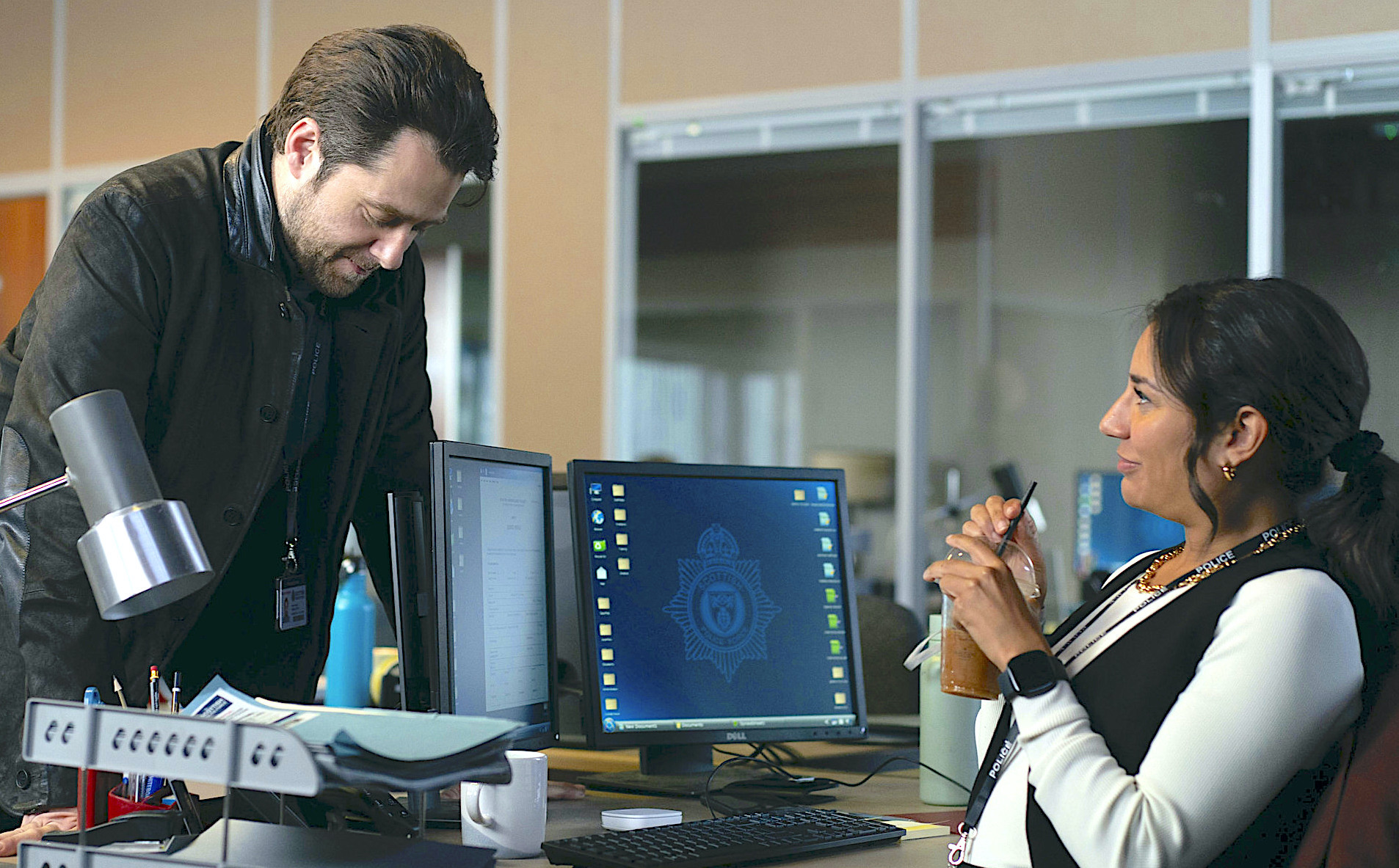 On camera, a tiny little change of expression means much more than if you’re on stage.
On camera, a tiny little change of expression means much more than if you’re on stage.
Yes, and I think I’ve come from such a stage background and I think I sit quite well on stage because I’m quite animated. I think that’s why I work for the Momtaz part actually, cos with her it’s just the eyes. I have to use my whole body to convey it all so I think that’s why it works for that role. I learned a lot from that day about the differences between theatre and television.
Do you think there’s almost too much on TV now?
I remember when people would sit down at a certain time to watch a particular episode of something, and now I think it’s only with Line of Duty and Happy Valley where the season finales are an event. I think people lack patience, because particularly during Covid we all watched series to get through it all. We’d binge a show that took maybe a year to film in the space of an afternoon, so we’ve kind of lost the appreciation of the quality and the time it takes to put a series together. I hope we do return to a golden age where TV is an event again.

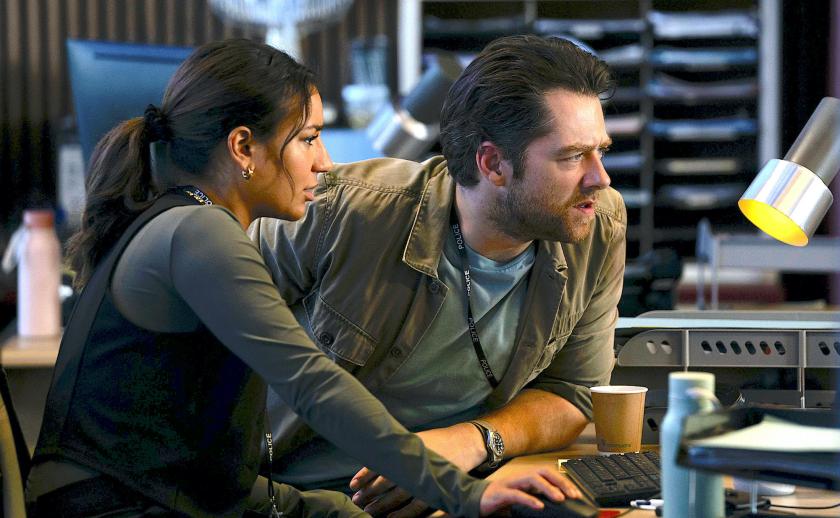













Add comment